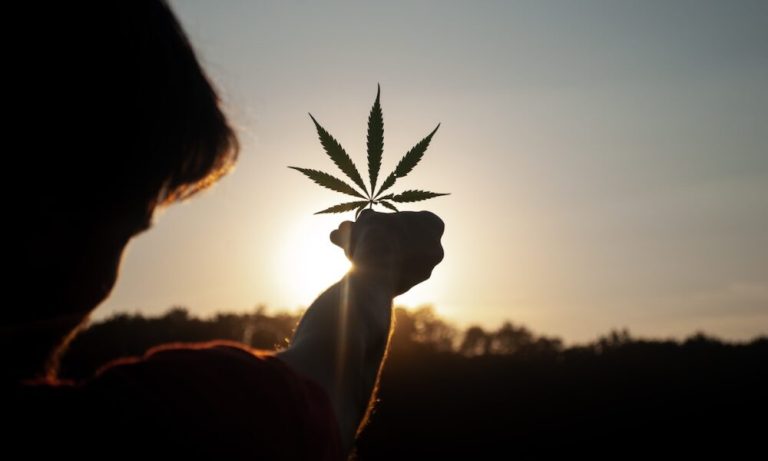Cannabis brings people together and never more so than on 420 when consumers across the globe gather to celebrate the plant and call for change.
The 20th day of the fourth month (20 April) is widely known in the cannabis community as 420 and has become internationally recognised as a day to celebrate cannabis culture.
The event is also seen as an opportunity for campaigners, advocates and consumers to come together and lobby for widespread acceptance and reform.
On the momentous day, we take a look at the meaning behind it and reflect on the progress being made across Europe.
What is the history behind 420?
Although the history behind how 420 originated is a little ambiguous, it is widely reported to have originated from the US in the 1970s.
According to Time magazine, the story can be traced back to California, 1971, when five students at San Rafael High School would meet at 4:20pm by the campus’ statue of chemist Louis Pasteur to smoke.
This group — Steve Capper, Dave Reddix, Jeffrey Noel, Larry Schwartz, and Mark Gravich — became known as the “Waldos” and would use ‘420’ as code for cannabis. Read more about their story here. When Reddix later got work with the band, Grateful Dead, they are thought to have helped popularise the term.
In 1990 a group of fans handed out flyers encouraging people to smoke ‘420’ on 20 April at 4:20 pm. Steve Bloom, a former reporter for High Times magazine, came across the flyer and from then on, the magazine continued to reference the term in its content. In 1998, the outlet acknowledged that the “Waldos” were the originators of 420, by which point it had become code for cannabis across the globe.
How is 420 celebrated today?
Today 420 sees mass gatherings and demonstrations take place in green spaces in major cities across the world. In London, thousands of consumers will descend on Hyde Park with police traditionally turning a blind eye to the activities.
As the adult-use of cannabis is increasingly being legalised in US states (and Europe slowly showing signs of following suit) the event has garnered attention from the mainstream media, and of course, brands looking to tap into a marketing opportunity.
With media coverage often tending to exacerbate the typical ‘stoner’ stereotypes the event has also sparked some debate around whether demonstrations of mass civil disobedience are actually the most effective way to change opinions and advocate for cannabis reform.
But at its heart, 420 is still grounded in the grassroots movement.
Beyond the glossy marketing campaigns and clickbait headlines, smaller low-key events take place in cannabis clubs and communities across the UK.
420 reform in Europe
With recent developments putting a number of European countries on the path to reform, we can expect the celebrations to be heightened this year.
Last year hundreds of campaigners gathered in Berlin to demand legalisation. Fittingly, this Health Minister announced his plan to legalise cannabis clubs, personal possession of up to 25g and self-cultivation by the end of the year.
While the plans have been scaled back from the initial nationwide legalisation proposed, the move still represents a big win for consumers and no doubt a cause for celebration.
Consumers will also be celebrating in the Czech Republic, where official proposals for the legalisation of adult-use cannabis are expected as soon as next week.
The plans are expected to include a 5g limit per day and a compulsory register of consumer. According to the state’s drug policy coordinator, Jindřich Vobořil and the Pirate Party, the proposal could generate around €85 million per year in tax.
In the Swiss city of Basel some consumers will be celebrating the occasion with legal cannabis, following the launch of its pilot adult-use ‘weed care’ trial earlier this year.
As part of the experiment over 300 people are permitted to purchase a limited number of approved products from select pharmacies. Participants will be regularly asked about their cannabis consumption behaviour and their physical and mental health in order to examine the effects of regulated cannabis sales.
Two further trials have been announced in the Swiss cities of Zurich and Lausanne, while a similar pilot is expected to launch in the Netherlands in October 2023.
Hot on the heels of Germany’s announcement, Luxembourg also confirmed its intention to establish a similar experiment, with Minister of Health, Paulette Lenert, telling a local media outlet that plans would be presented to the government soon.
To date, Malta remains the European country with the most progressive drug laws, having legalised recreational cannabis for adult-use in 2021.
Under the law, adults are allowed to carry up to 7g of cannabis and grow four plants for personal use. But rather than purchasing cannabis products through dispensaries or pharmacies, consumers are required to join non-profit cannabis cooperatives.
What about the UK?
The UK continues to lag behind when it comes to the campaign for cannabis legalisation, despite having one of the most established medical cannabis markets in Europe.
While consumers light up in London’s Hyde Park today, down the road MPs will debate the economic benefits of medicinal cannabis in parliament for the first time.
The debate titled the ‘economic contribution of medical cannabis’, led by Rt Hon David Mundell MP, takes place at 3pm and is the first to focus on the UK’s medical cannabis industry.
Cannabis Health will have coverage of the debate in the coming days.
